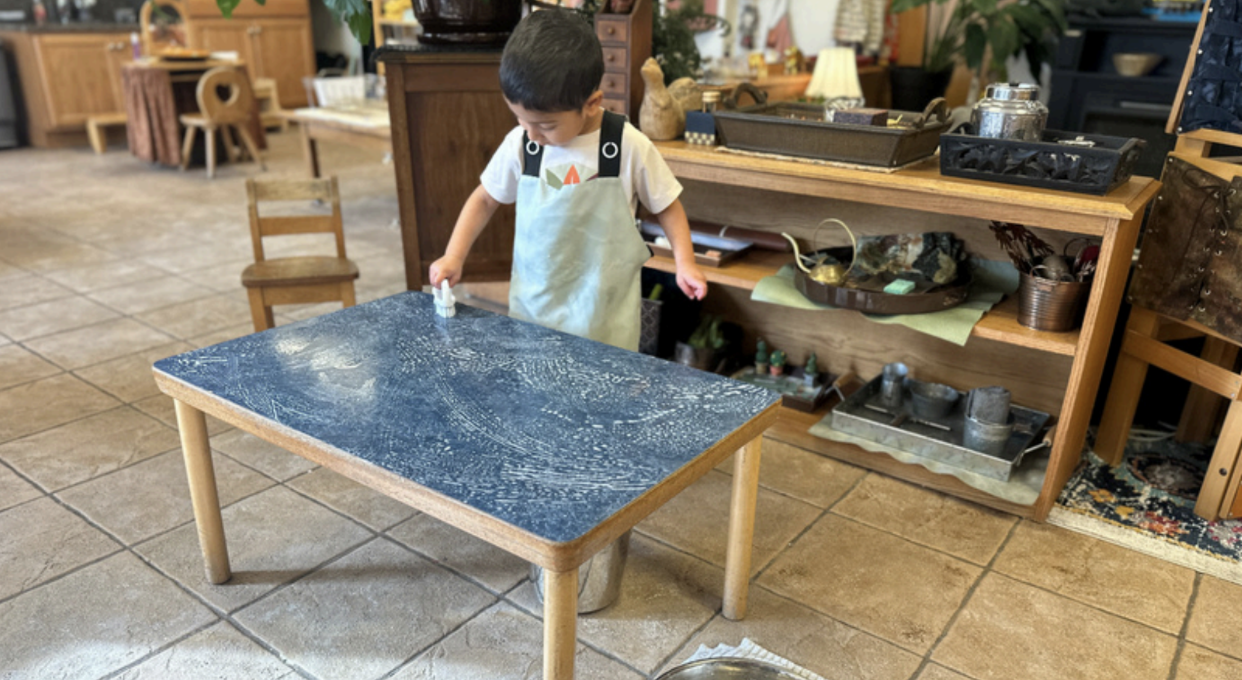Parents new to Montessori often ask, “Why is my child washing cloths at school?” or “What’s the purpose of all this polishing and scrubbing?” At first glance, practical life activities may seem simple—even mundane. But in a Montessori classroom, they are deeply intentional, serving as the foundation for a child’s development across many areas.
Dr. Maria Montessori observed that young children are naturally driven to engage in real, purposeful work. They want to imitate the adults around them—not just in play, but through meaningful actions. Practical life activities, like table scrubbing, pouring, sweeping, and polishing, allow children to participate in the world in a way that feels real and empowering.
Each activity goes far beyond a polished piece of brass or a clean table. For example, table scrubbing isn’t just about cleanliness—it’s an indirect preparation for writing. Through circular scrubbing motions, children
strengthen arm and wrist muscles, refine coordination, and begin to understand sequencing: first wet the table, then scrub, then rinse, then dry. Similarly, metal polishing helps develop the pincer grip, a critical pre- writing skill, as the child carefully holds a small applicator stick and works with focus and precision.
These activities build concentration, independence, and a sense of order. They help the child think in logical
sequences and develop a lasting sense of responsibility for their environment and themselves. So yes—your child may be washing cloths at school. But through that simple act, they are building confidence,
fine motor control, and the foundations for academic learning and lifelong habits.



Leave a Comment